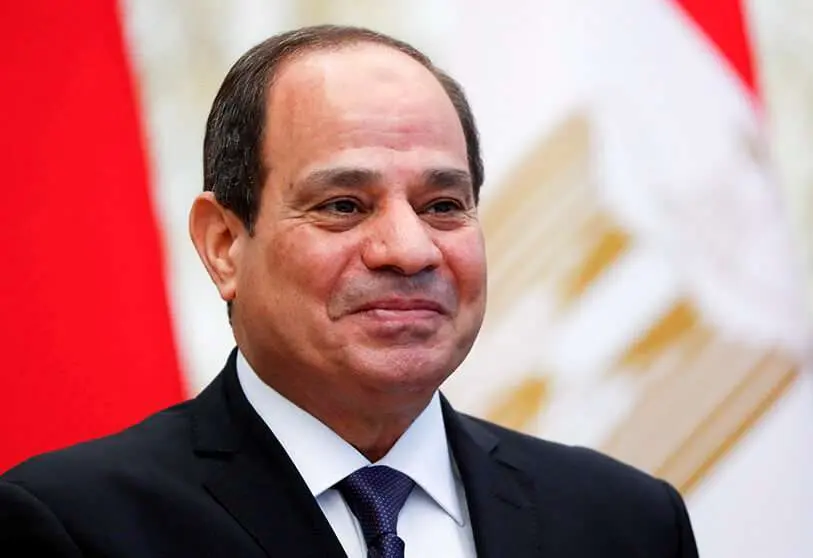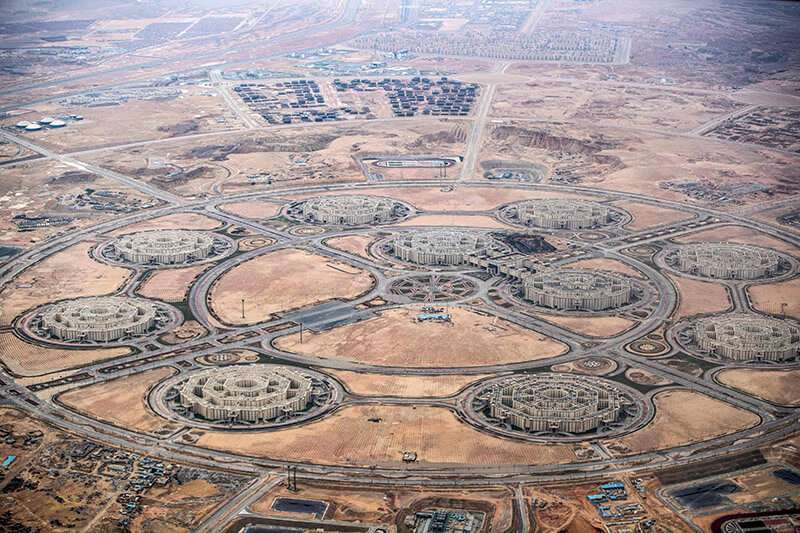Egypt celebrates its economic achievements despite the pandemic

The Egyptian Embassy in Spain has issued an official statement showing the economic development the country has undergone since the arrival of President Abdel Fattah al-Sisi.
Throughout history, Egypt has had to face numerous challenges and internal political conflicts that have stood in the way of its development. "However, the country has always worked tirelessly to overcome each and every one of these challenges," the report explains.
Due to its geopolitical position, Egypt has had to respond to changes in the regional and international scene as well as to numerous crises and conflicts. But this geographical location has also been one of the keys to its economic development process.
The embassy has reported that this development process has accelerated in recent years and, since 2011, "long-term economic reform programmes have been promoted, the result of a new vision of economic development which seeks, for the first time in its history, to carry out key structural reforms to address the main problems of the Egyptian economy".
Achieving macroeconomic stabilisation, recovering growth and employment, reducing the debt and increasing social protection for the most disadvantaged sectors are the main objectives the Egyptian government wants to tackle.
During President Al-Sisi's term of office, spending policies have been reformed so that public spending, which was mainly focused on consumption, has become productive spending that drives economic growth. In this way, investment has been made in infrastructure, promoting the construction of roads, bridges and railways.
A new administrative capital has also been built, and investment has been made in the industrial and service sectors, in the rehabilitation of farmland and the modernisation of the agricultural sector.
Within all these policies, research and development should be highlighted. Firstly, the public administration has been transformed into a new "more digital" one in which new technologies play a key role. All of this is part of the reform plan initiated in 2017 and endorsed by the World Bank, and which is being implemented in collaboration with the International Monetary Fund to make Egypt a modern economy,".
The objective is not only economic growth but also the gradual improvement of the economic and social well-being of its citizens, "it is about ensuring that development is directed towards social justice and that the most disadvantaged groups are protected".
The promotion of economic development has been accompanied by social policies for human and inclusive development, in education, health and access to decent housing for the most disadvantaged classes, with many projects for the construction of social housing and the rehousing of families living in irregular settlements in very depressed areas.

Economic and social reforms have borne fruit, and reports from the International Monetary Fund, the World Bank and the relevant agencies and institutions have highlighted the remarkable improvements in economic and social indicators since the start of the reform programme.
These international bodies have also underlined the remarkable improvement in indicators where major shortcomings were observed. Unemployment has reached an all-time low of 8.3% this year and further declines are expected by the end of the fiscal year in 2020-2021.
"Particularly noteworthy are the liberalisation of the exchange rate of the Egyptian pound, the acceleration of the economic growth rate, the reduction of the public deficit, the increase in public revenue through the reform of the tax system and expenditure control, the reduction of foreign debt, the increase in foreign currency reserves and the decrease in inflation and unemployment," the embassy explains.
The new situation of the international coronavirus pandemic has affected the whole international community without exception and has also posed a very significant challenge to the Egyptian economy. However, Egypt's management of the pandemic has been assessed very positively by the international community, "despite such adverse circumstances, Egypt is expected to maintain a positive economic growth rate during 2020 and 2021".
Egypt has achieved a balance between taking the necessary health measures to deal with the pandemic, continuing economic activity and its economic development policies which have devoted a large part of their budget to improving the health and education sectors. Significant resources have also been allocated to support temporary workers and families most affected by this crisis.
It is worth noting that in September 2020, at the height of the international health crisis, the Moody's rating agency praised Egypt's creditworthiness indicators, awarding it a B2 (stable) rating. This rating indicates a country's ability to service its debts, reduce its credit needs and maintain its foreign currency reserves.
The Goldman Sachs Investment Banking Group has also recognised Egypt's ability to withstand the effects of the pandemic and to meet its responsibilities. It has stressed that 50% of the indirect foreign investment that left the country at the beginning of the crisis (some $10 billion) has already been recovered.

The economic expectations of inflation are positive and so is the strength of the Egyptian pound, which expects an improvement in tourist income despite the health crisis. The tourism sector is also showing signs of a progressive and robust recovery: Wizz Air has announced the resumption of three weekly flights between Milan and Alexandria. KLM, after three years without flying to Cairo, has resumed operations and flights have also resumed from Russia and Kazakhstan, etc.
"All this is just a sign that the strict implementation of health measures to deal with the pandemic makes Egypt a safe tourist destination," the embassy recalls.
In short, the communiqué issued by the embassy reflects that these results show the commitment of the Egyptian government to face up to each and every one of the most important weaknesses of the economy, "suffice it to say that inflation has been reduced significantly, from 6.7% in August 2019 to 4.6% in July 2020 and 3.4% in August 2020, as a result of the sustained drop in food prices".
Another example is the Digital Public Property Registry, which includes the registration of both urban and agricultural and rural properties. This register has provided a solution to the problem of the uncontrolled expansion of construction in natural and agricultural areas following the 2011 riots.
Spending policy is a fundamental tool in economic policy, and the Egyptian state has declared a goal of increasing public investment in 2020-201 by 55% with respect to the previous year, which means a total of 280 billion Egyptian pounds (of which 225 billion come from the general state budget) and of which 10% will go to water and sanitation projects.








